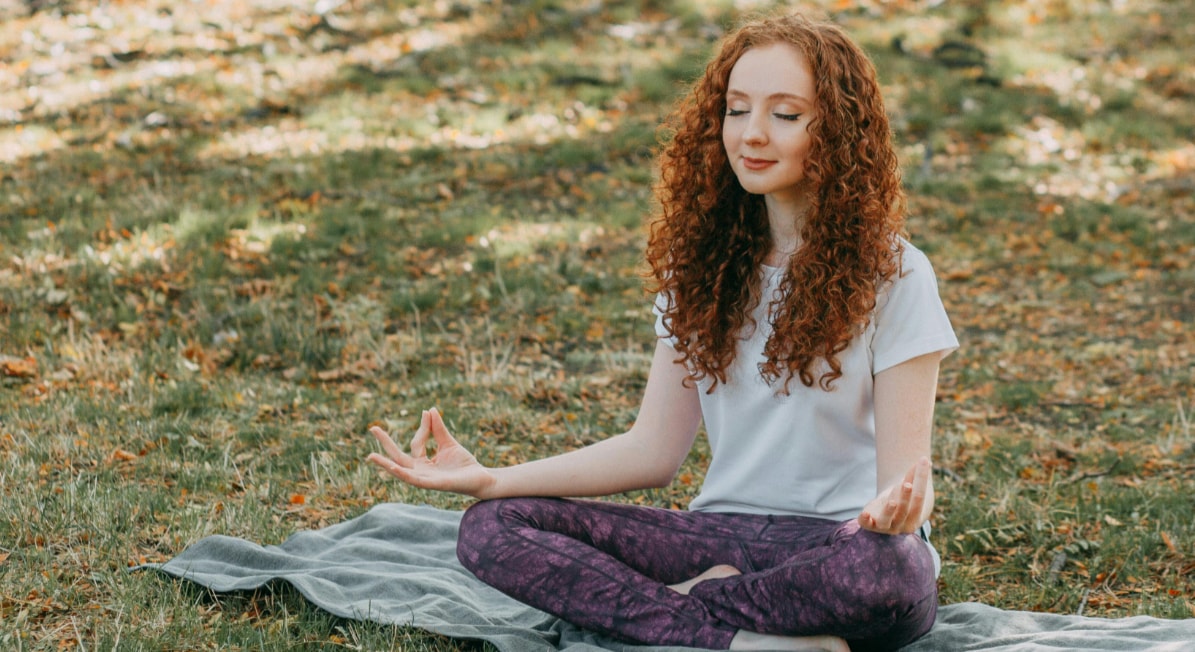

Living in Wenatchee, surrounded by natural beauty and a tight-knit community, one might think stress is an infrequent visitor. However, the hustle of daily life, work pressures, and personal responsibilities can accumulate, leaving even the most serene environment feeling overwhelming. Mindfulness, an ancient practice rooted in bringing one's attention to the present moment, offers a powerful antidote to stress. By incorporating mindfulness into your daily routine, you can cultivate a sense of peace and clarity that transcends the chaos of modern life. This article explores various mindfulness practices that can help Wenatchee residents reduce stress, enhance their well-being, and reconnect with the tranquility of their surroundings.
Embrace Calm: Mindfulness Practices to Reduce Stress for Wenatchee Residents
In the hustle and bustle of daily life, it's easy to become overwhelmed by stress and distractions. This is especially true for residents of Wenatchee, where the balance of work, family, and social obligations can sometimes feel overwhelming, despite the serene natural surroundings. One effective way to manage and reduce stress is through mindfulness practices. Mindfulness, an ancient practice rooted in Eastern traditions, has gained significant popularity in recent years due to its profound impact on mental well-being. This article explores what mindfulness is, its benefits, and various practices that can help you incorporate mindfulness into your everyday life.
At its core, mindfulness is the practice of bringing one’s attention to the present moment without judgment. It involves being fully aware of your thoughts, feelings, bodily sensations, and surrounding environment. The essence of mindfulness is acceptance; acknowledging whatever arises without trying to change it. This practice can be applied in various ways, from formal meditation sessions to simple, everyday activities.
One common misconception about mindfulness is that it requires you to clear your mind completely. In reality, mindfulness is not about stopping thoughts but about observing them without attachment. It's about creating a space between you and your reactions, allowing you to respond thoughtfully rather than react impulsively. This practice helps in cultivating a deeper understanding of oneself and a greater appreciation for the present moment.
The Benefits of Mindfulness
The benefits of mindfulness are well-documented and supported by a growing body of scientific research. These benefits extend beyond just mental well-being, influencing physical health, emotional regulation, and overall quality of life.
Reducing Stress and Anxiety
One of the most significant benefits of mindfulness is its ability to reduce stress and anxiety. By focusing on the present moment, mindfulness helps to interrupt the cycle of worry and rumination that often fuels anxiety. Practicing mindfulness allows you to become more aware of your stress triggers and your habitual responses to stress, enabling you to develop healthier coping mechanisms. For instance, a simple mindfulness practice like mindful breathing can help calm the nervous system. By paying attention to the breath and noticing each inhale and exhale, you can bring yourself back to the present moment, reducing the impact of stress on your mind and body.
Improving Emotional Health
Mindfulness has a profound impact on emotional health, helping individuals develop greater emotional intelligence and resilience. Regular mindfulness practice increases awareness of emotions, allowing you to recognize and understand them without becoming overwhelmed. This heightened awareness can lead to improved emotional regulation, enabling you to respond to difficult emotions in a healthier way.
Moreover, mindfulness fosters a sense of compassion and empathy, both towards oneself and others. By practicing self-compassion, you can reduce negative self-talk and cultivate a more positive and supportive inner dialogue. This, in turn, enhances overall emotional well-being and fosters healthier relationships.
Enhancing Physical Health
The mind-body connection is powerful, and mindfulness practices can have a significant impact on physical health. Regular mindfulness practice has been linked to reduced blood pressure, improved immune function, and lower levels of inflammation. Additionally, mindfulness can help manage chronic pain by changing the way you perceive and respond to pain signals. Mindful eating is another way mindfulness can benefit physical health. By paying attention to the sensory experience of eating and listening to your body’s hunger and fullness cues, you can develop a healthier relationship with food. This practice can lead to better digestion, weight management, and overall nutritional health.
Boosting Cognitive Function
Mindfulness also enhances cognitive function, improving focus, attention, and memory. By training the mind to stay present, mindfulness helps reduce distractions and increases the ability to concentrate on tasks. This heightened focus can improve productivity and performance in various areas of life, from work to personal pursuits.
Studies have shown that mindfulness meditation can increase gray matter in brain regions associated with learning, memory, and emotional regulation. This suggests that mindfulness not only improves cognitive function in the short term but also promotes long-term brain health.
Mindfulness Practices and Exercises: Cultivating Awareness in Everyday Life
Mindfulness is the practice of paying attention to the present moment without judgment. It's about becoming aware of your thoughts, feelings, and bodily sensations in a detached and objective way. This simple act of focusing on the "now" can have profound benefits for your mental and emotional well-being.
Mindfulness isn't about achieving a state of perfect inner peace or emptying your mind. It's more about cultivating a gentle awareness of your internal world and the world around you. It's about learning to observe your thoughts and feelings without getting swept away by them.
Here are a variety of mindfulness practices and exercises you can incorporate into your daily routine, regardless of your experience level:
Meditation:
Meditation is perhaps the most well-known mindfulness practice. It involves sitting comfortably in a quiet place and focusing your attention on a particular object, sound, sensation, or your breath. There are many different meditation techniques, but some popular ones include:
- Breath Meditation: This simple technique involves focusing your attention on your breath as it enters and leaves your nostrils. When your mind wanders, gently bring your attention back to your breath.
- Body Scan Meditation: In this practice, you systematically focus your attention on different parts of your body, starting from your toes and working your way up to your head. Notice any physical sensations, such as tension, relaxation, or warmth.
- Guided Meditation: Guided meditations involve listening to a recording of a voice that leads you through a visualization or meditation practice. This can be a helpful way to get started with meditation if you find it difficult to focus on your own.
There are many free guided meditations available online and on apps like Insight Timer. You can also find meditation classes in person or online.
Mindful Movement:
Mindfulness isn't just about sitting still. You can also practice mindfulness through movement. Here are a few ideas:
- Mindful Walking: When you're going for a walk, pay attention to the sensations in your body as you move. Notice the feeling of your feet touching the ground, the rhythm of your breath, and the sights, sounds, and smells around you.
- Yoga: Yoga combines physical postures, breathing exercises, and meditation. It's a great way to improve your flexibility, strength, and balance, while also cultivating mindfulness.
- Tai Chi: Tai Chi is a gentle form of exercise that combines slow, flowing movements with deep breathing. It's a great way to improve your coordination, balance, and focus.
The key to mindful movement is to focus on the sensations in your body and your breath as you move. Don't worry about how you look or how well you're doing the exercise. Just be present in the moment.
Mindfulness in Everyday Activities:
You can also practice mindfulness by paying attention to everyday activities that you might otherwise do on autopilot. Here are a few examples:
- Mindful Eating: When you're eating, slow down and savor each bite. Notice the taste, texture, and smell of your food. Chew your food thoroughly and pay attention to your body's signals of hunger and fullness.
- Mindful Listening: When you're having a conversation with someone, give them your full attention. Put away your phone, make eye contact, and listen to what they're saying without interrupting.
- Mindful Cleaning: Even mundane chores like cleaning can be an opportunity to practice mindfulness. Focus on the sensations in your hands as you clean, the sound of the vacuum cleaner, or the smell of the cleaning products.
By bringing your awareness to everyday activities, you can learn to appreciate the simple things in life and reduce stress.
Additional Tips for Practicing Mindfulness:
- Start small: Don't try to meditate for an hour right away. Start with just a few minutes a day and gradually increase the amount of time you spend practicing.
- Be patient: It takes time and practice to develop a mindfulness practice. Don't get discouraged if you find it difficult to focus at first.
- Be kind to yourself: If your mind wanders, don't judge yourself. Just gently bring your attention back to the present moment.
- Find a practice that works for you: There is no right or wrong way to practice mindfulness. Experiment with different techniques and find what works best for you.
- Make it a habit: The more you practice mindfulness, the easier it will become. Try to integrate mindfulness into your daily routine, even if it's just for a few minutes each day.
Explore Serenity with Cascade Subaru
Incorporating mindfulness practices into your daily routine can profoundly impact your overall well-being, offering a respite from the relentless pace of life. For residents of Wenatchee, embracing these techniques can be particularly transformative, allowing you to fully appreciate the natural beauty and community spirit that define this region. Whether it's through mindful breathing, meditation, or simply taking a moment to be present in your surroundings, mindfulness provides a pathway to reducing stress and enhancing your quality of life. As you integrate these practices, you'll find yourself more grounded, centered, and equipped to handle life's challenges with grace and resilience. Embrace the journey towards a more mindful existence and discover the profound peace that lies within your reach, right here in Wenatchee.
At Cascade Subaru, we understand the importance of mental well-being and how it complements a balanced lifestyle. As you embrace these practices, consider upgrading your vehicle to enhance your journeys through our stunning region. Visit our new inventory to find the latest models designed for comfort and peace of mind. For budget-friendly options, explore our pre-owned inventory and discover reliable vehicles that suit your needs. Ready to take the next step? Easily qualify for financing and take advantage of our special offers to make your purchase seamless. Visit us at Cascade Subaru and let us help you find the perfect vehicle to accompany you on your mindful journeys around Wenatchee.






